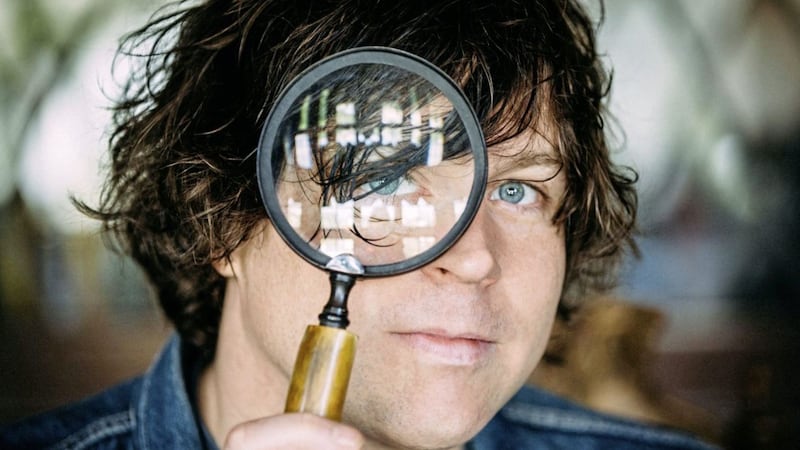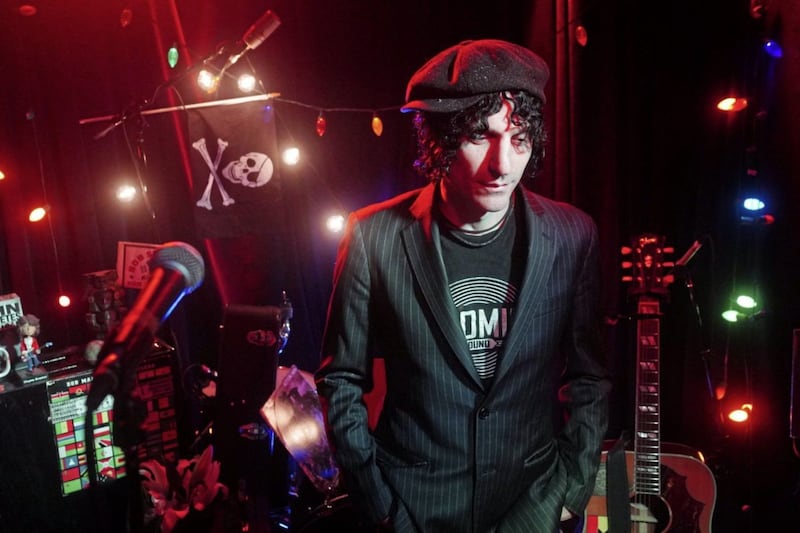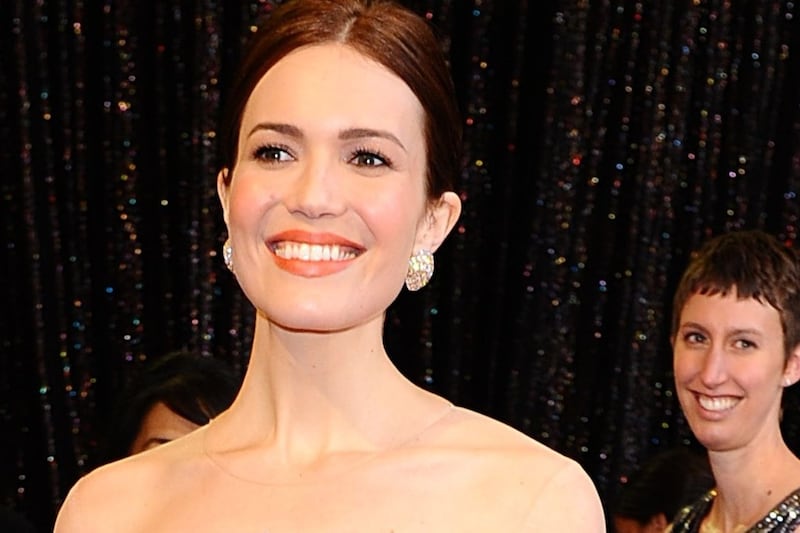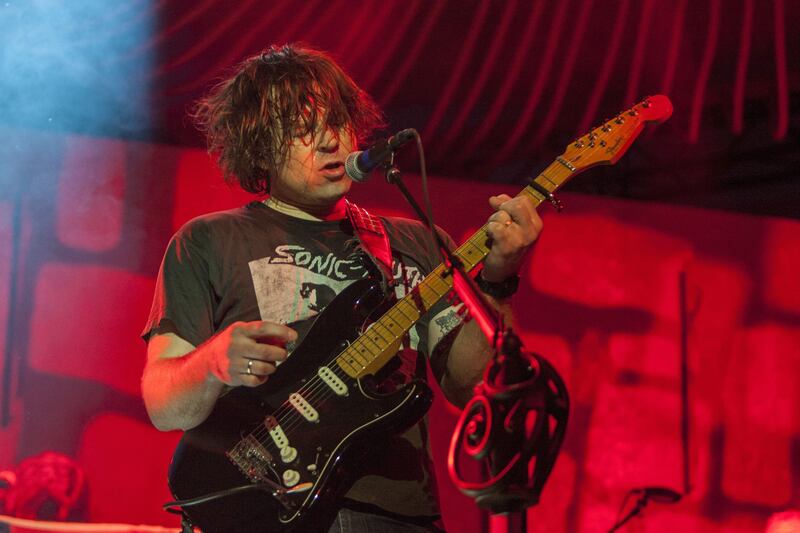RYAN Adams is enjoying a few days on America's West Coast; a welcome little getaway from his New York home in the middle of a rather hectic touring and promotional schedule.
That said, he couldn't be more pleased with his forthcoming album, Prisoner, and is raring to go. There's a spring in his step, which, while not altogether missing of late, has perhaps been less measured.
The Jacksonville native says something clicked around the time of making his 14th album, the self-titled Ryan Adams released in 2014, when he finally realised what sort of music he should be making, and felt so much more like himself.
"I probably did myself a favour in never imagining how many records I'd make," reasons the 42-year-old, when the subject of Prisoner being his 16th solo album comes up.
"I didn't process it all too much, and stayed in the moment through the good and bad. It's nice when I hear that number, and I think, 'Hey, you made it'. Most people, I think, after making records for a long time get into a pattern, and they get used to breaking that pattern and finally getting closer to their own sound. I feel like I know what that is now."
Asked what that sound is exactly and he's less sure, offering that his music is "more about storytelling than anything else".
He's wise not to classify it too much. From the straight-up alt-country of his 2000 debut, Heartbreaker, and its more polished, rockier breakthrough Gold a year later, he's tinkered with the style ever since, leaning further toward traditional Nashville sounds with the records he made with The Cardinals in the mid-Noughties, punk elements here and there and out-and-out metal on 2010's Orion.
There was even a cover of Taylor Swift's 1989 album, released in 2015.
The roots of this settled mood are partly due to learning to live with Meniere's disease, a condition of the inner ear that sees sufferers plagued by attacks of vertigo, tinnitus and hearing loss, among other ailments.
In 2009, when Adams was properly diagnosed, it led to him calling time on working with The Cardinals and moot a retirement from music.
He didn't retire, but it did put an end to a prolific era that had seen him release 10 albums in eight years.
During the making of 2011's Ashes & Fire, he started to deal with the Meniere's more effectively. And by the time he started thinking about that self-titled record, he'd set up his own studio, a dream finally fulfilled, kicked various addictions into touch and generally started taking better care of himself.
"It was like when I first started again," he recalls. "And I say I started taking better care of myself; it's more that I make better decisions on a day-to-day basis. It's taken me time to get here, and it's taken time to find like-minded people who want to do the same thing as me.
"As for Meniere's, I can't do anything about that, but I can drag my ass out of bed and start my day," he adds.
"That I can control."
His current line-up of musicians, an assortment of old friends and new, he describes as being like 'the world's most emotional metal band' that have somehow hit on music that sits (his words) between the vibe of The Smiths, Tears For Fears, Simple Minds and The Boys Of Summer-era Don Henley.
"We've taken those influences and we've been able to connect them in a strange way, like the songwriter side of soft rock, without being too macho. It's also romantic. That's the ultimate thing that I want to do, and I want to shimmer and take people's breath away," he explains, before trailing off into laughter.
"It sounds like I don't know what I'm talking about, doesn't it?"
Illness, or rather coming to terms with his condition, looms large over Prisoner.
So too does divorce.
Adams married singer-turned-actor Mandy Moore in 2009, but they separated in 2015, later issuing a joint statement saying it was a "respectful, amicable parting of ways", with the divorce finalised in June 2016.
The subject is off limits today, although Prisoner is so chock-full of references to the event, it's scarcely worth asking about anyway.
The song titles alone are enough. There's opening track Do You Still Love Me?; To Be Without You; Anything I Say To You Now; Breakdown; Broken Anyway, and We Disappear – all telling different parts of the story.
Haunted House, meanwhile, finds the song's protagonist, presumably Adams, in a rundown property, lamenting the fact he lives there alone.
Writing these must have been cathartic?
"Any music that has any emotion in it is going to be cathartic," agrees the singer.
"Even if it's joy. My songs are always just storytelling, so I don't know any different. My songs have always had that element, and they've always been emotional. I don't have many songs that aren't about something. They're not political and I don't have an agenda. I just think the format fits me well.
"There's an athleticism in my songs that I wouldn't get putting those words in poetry, and a brevity that wouldn't be there in novel-writing," Adams adds.
"It's a very malleable form; there's design, engineering, light and colour, and a chaos element. For me, that's perfect."
Ryan Adams' Prisoner is out now. He plays The Ulster Hall in Belfast on September 8, Cork Opera House on September 9 and the Olympia Theatre in Dublin on September 11. Tickets on-sale Friday February 24 at 10am via Ticketmaster outlets








